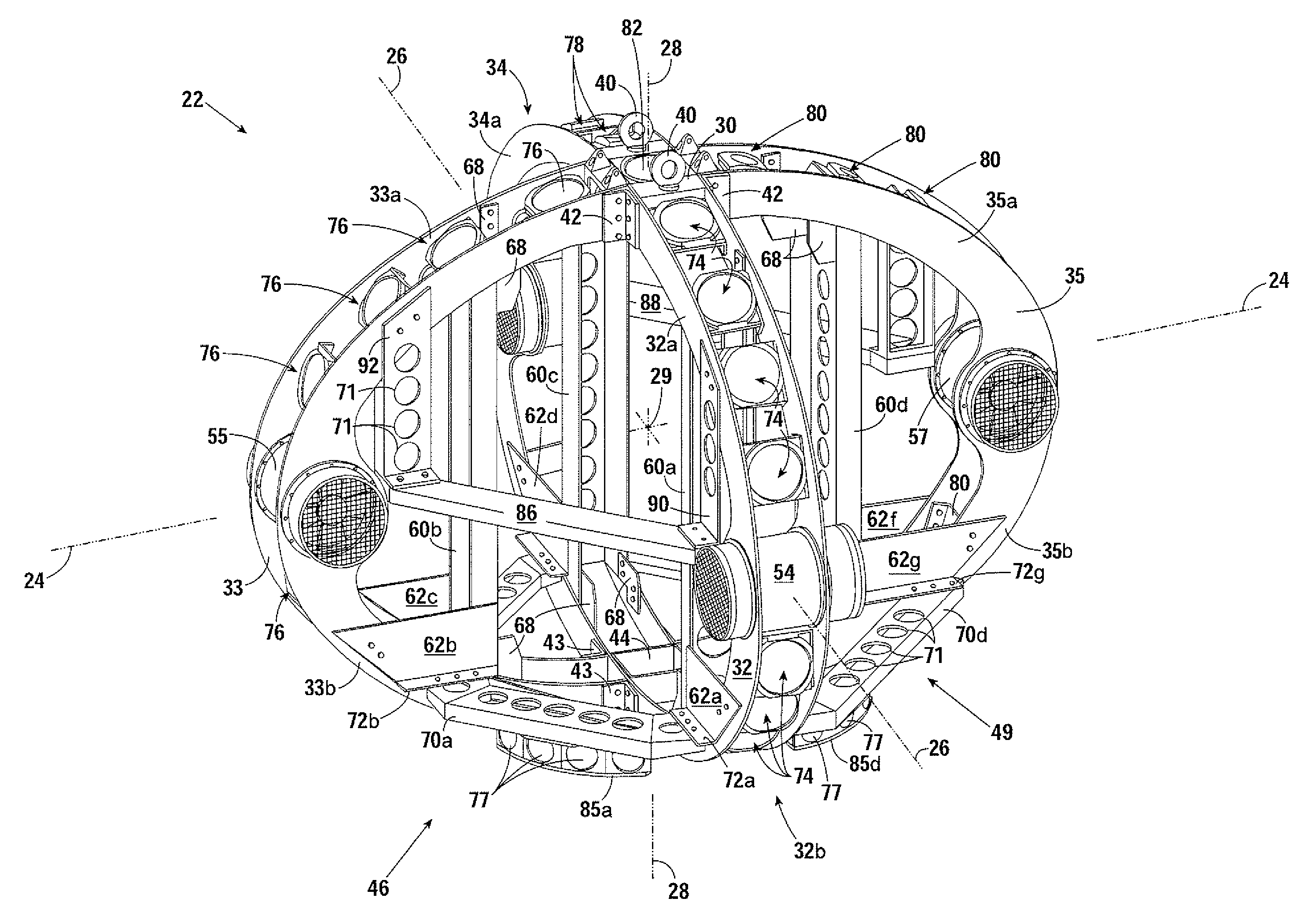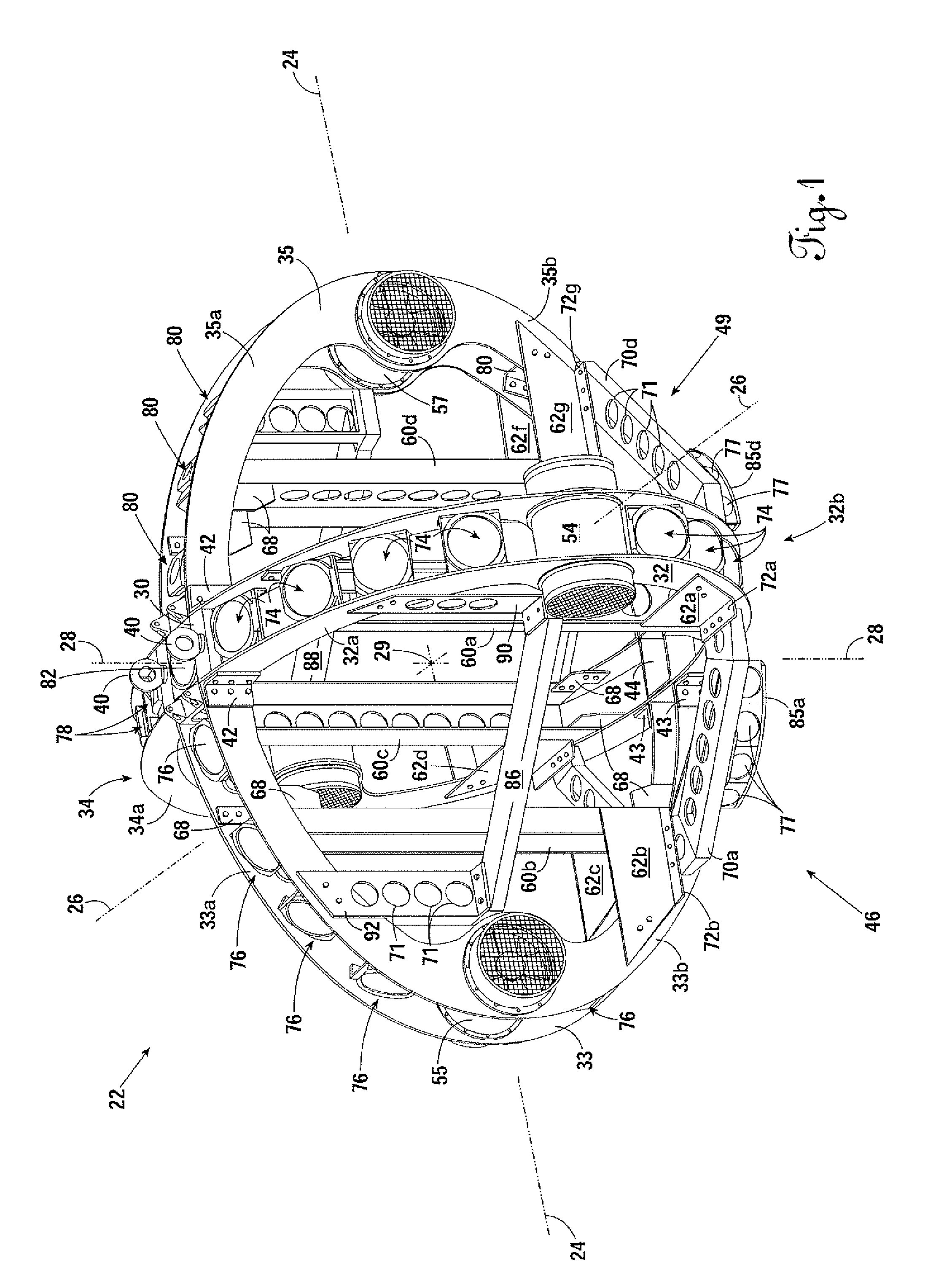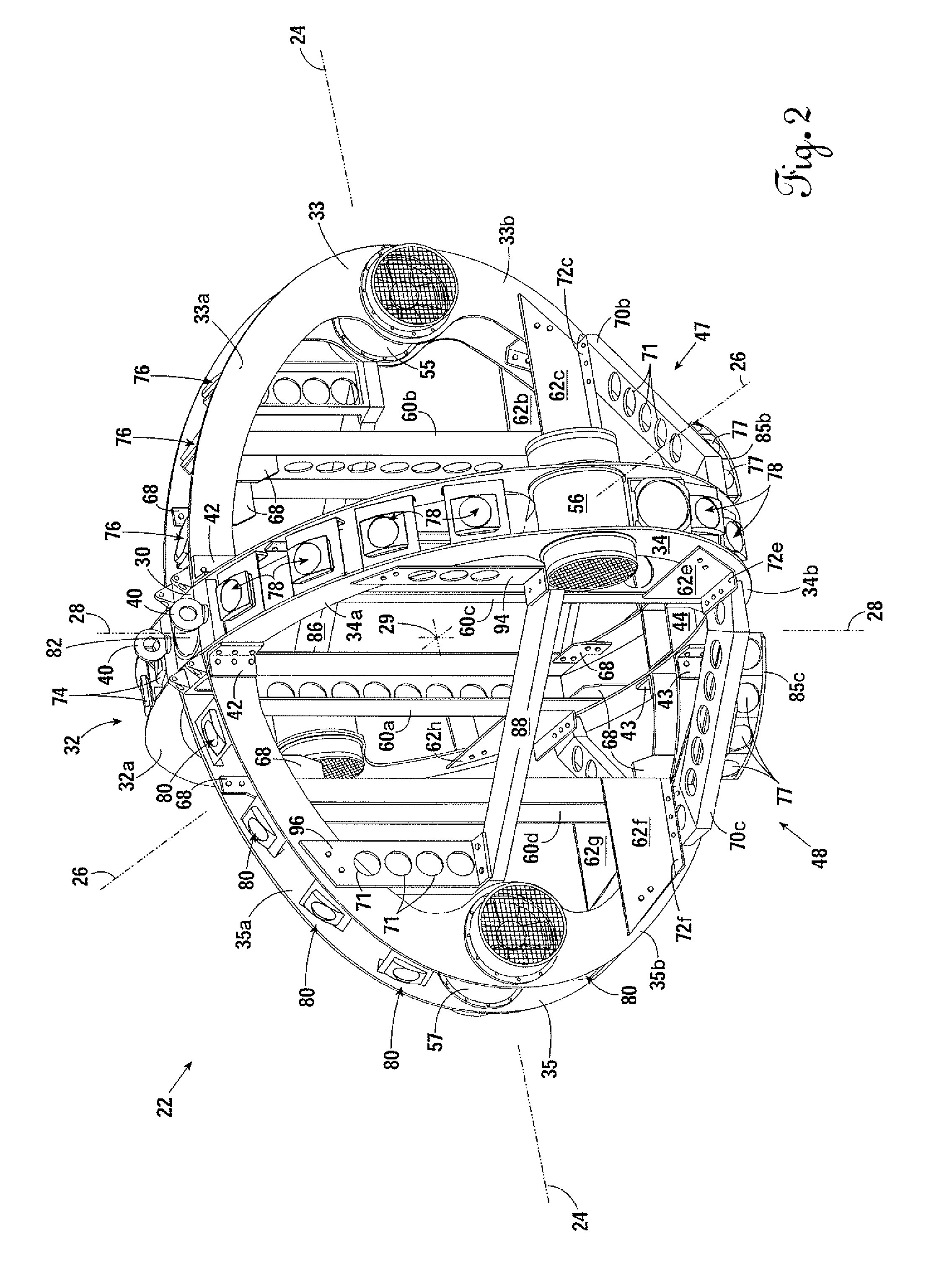Underwater vehicle with sonar array
a sonar array and underwater vehicle technology, applied in underwater equipment, special-purpose vessels, instruments, etc., can solve the problems of complex terrain surrounding the vehicle on all sides, true three-dimensional navigation problems, and certain problems of traditional underwater vehicles
- Summary
- Abstract
- Description
- Claims
- Application Information
AI Technical Summary
Benefits of technology
Problems solved by technology
Method used
Image
Examples
Embodiment Construction
[0032]FIG. 1 and FIG. 2 are an isometric top front view and an isometric top rear view, respectively, of the axi-symmetric framing system 22 of the preferred embodiment of the present invention. The axi-symmetric framing system 22 is described with reference to an x-y-z coordinate system having an x-axis 24, a y-axis 26, and a z-axis 28, such that rotation of the framing system 22 about the z-axis 28, or “centerline,” which intersects with the center 29 of the framing system 22, defines a uniformly-convex shell of revolution. By containing the subsystems and science payload of the vehicle within this shell of revolution, the vehicle has no “port,”“starboard,”“bow,” nor “stern,” and thus can maneuver at will in the yaw degree of freedom—that is, rotation about the centerline 28 that generated the shell of revolution. Moreover, a uniformly-convex topology serves to reduce possible catch points on the vehicle—thus, spheres, oblate spheroids, ellipsoids and even cylinders with rounded e...
PUM
 Login to View More
Login to View More Abstract
Description
Claims
Application Information
 Login to View More
Login to View More - R&D
- Intellectual Property
- Life Sciences
- Materials
- Tech Scout
- Unparalleled Data Quality
- Higher Quality Content
- 60% Fewer Hallucinations
Browse by: Latest US Patents, China's latest patents, Technical Efficacy Thesaurus, Application Domain, Technology Topic, Popular Technical Reports.
© 2025 PatSnap. All rights reserved.Legal|Privacy policy|Modern Slavery Act Transparency Statement|Sitemap|About US| Contact US: help@patsnap.com



